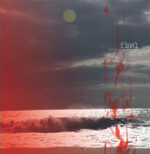|
|
 |
Dusted Reviews
Artist: Final Album: Reading All the Right Signals Wrong Label: No Quarter Review date: Mar. 4, 2009 |

|
|
|
 |
Active since his own formative years in early-1980s hardscrabble Birmingham, Justin Broadrick’s Final project remains the longest-running of his current endeavors (which now include the Pathological Records throwback Greymachine in addition to the titanic Jesu). As an outlet for unrestrained sonics even too obtuse for the song-driven work of Jesu and Godflesh, it’s served him well over the years. Final’s latest full-length release comprises four tracks over a 45-minute program that offer much more of a cohesive listen than Neurot Records’ 3 (released in 2006), as intriguing a hodgepodge as that record is. For one thing, Broadrick refocuses attention on his guitar as a prominent (and clearly recognizable) instrument throughout. Whether a conscious move or not, the simplicity of his playing helps it to work without sounding like a disembodied “rock” organ in an ambient-music context.
Creeping in with an ominous rumble, “Right Signal” metastasizes in all the right ways, exploiting the expanse of dynamics that are possible through the use of a number of sound sources working in concert. A 1980s-vintage synth patch not far removed from the likes of those heard in Jesu’s recent material carries the track to its shimmering crescendo, a cricket’s chorus of single-note guitar loops. The throaty guitar riff that underpins “Wrong Signal” might have been cannibalized from a Godflesh soundcheck. It becomes obscured under layers of white noise and drifting tones from synthesizer that barely sketch out a melody, somewhat like the most soporific moments of Aphex Twin’s Selected Ambient Works Volume II. A pair of lazily droning guitar strings and vertiginous, dueling sinewaves at both ends of the frequency spectrum tug “Stop at Red” steadily downward to a unsettling mini-inferno of a climax, complete with processed moans amid the electronic chatter. The album ends on a meditative, cyclical note with “Green,” wherein Broadrick snips the attack and decay from either end of his guitar samples, and arranges the segments into a gently undulating tapestry.
Final’s latest installment furthers the emotional breadth of Broadrick’s work perhaps in a subtler way than does Jesu. Think of Jesu as the solitary man gazing wistfully out the subway window at the lonely city. Here, Final is the skyline, jeweled with the glint of waning fall sunshine filtering through the grey above – static and alienating, but somehow comforting in its familiarity.
By Adam MacGregor
|







